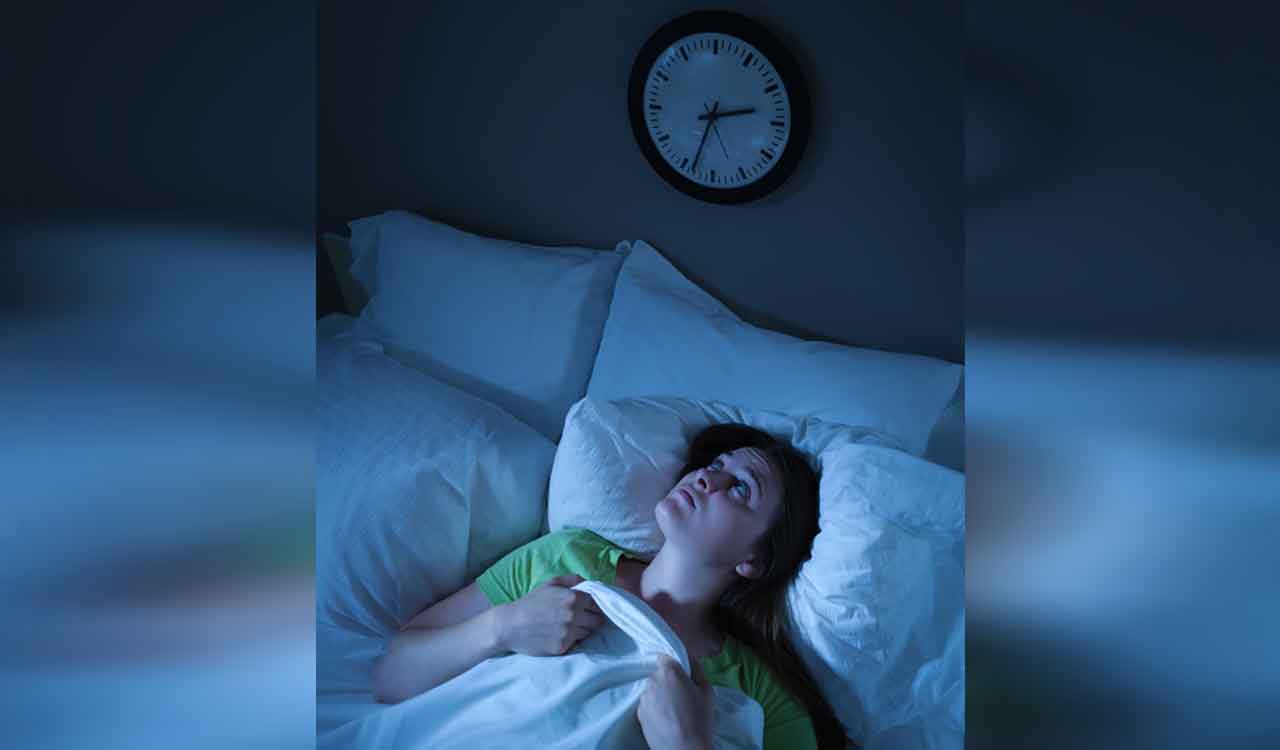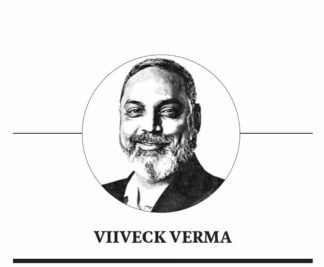Opinion: Why we’re not getting enough sleep?
While extra sleep can temporarily ease fatigue, it doesn’t reverse the cognitive and metabolic damage caused by chronic sleep deprivation

By Viiveck Verma
Sleep is the most paradoxical human necessity. Despite its critical role in health and survival, we continue to treat it as optional, a negotiable resource we can dip into or forgo at will. Modern life has fractured our relationship with rest, and the consequences ripple through our bodies and minds. While the science of sleep has made impressive strides, one glaring truth remains: that we still are not getting enough of it.
Also Read
- Opinion: Staying connected in digital age
- Opinion: Ambition and well-being
- Opinion: Learning from nature
- Opinion: Don’t stress over stress
- Opinion: Craving coffee? Listen to it
- Digital Detoxing: Science-backed strategies to unplug effectively
- Opinion: The art of giving up
- Opinion: Embrace imperfection
- Sleep Therapeutic opens second branch in Hyderabad
- Opinion: Preserve human touch with AI
The most alarming finding is that sleep deprivation mimics the effects of alcohol intoxication, slowing reaction times and impairing judgment
The irony lies in the fact that we know better. Decades of research have established sleep as the cornerstone of physical health, emotional stability, and cognitive function. The National Sleep Foundation recommends seven to nine hours of sleep for adults, yet surveys consistently report that nearly one-third of adults fall short of this target. In a world awash with fitness trackers and wellness apps, our inability to honour the most basic element of well-being feels almost absurd. Part of the issue is cultural. Sleep deprivation has long been celebrated as a badge of honour, synonymous with ambition and productivity. The ‘I’ll sleep when I’m dead’ mantra, made famous by everyone from CEOs to creatives, reinforces the toxic idea that rest is an indulgence, not a necessity, even though science says otherwise. Chronic sleep loss has been linked to heart disease, diabetes, obesity, and weakened immunity. Even a single night of poor sleep impairs memory consolidation, emotional regulation, and decision-making. Perhaps the most alarming finding is that sleep deprivation mimics the effects of alcohol intoxication, slowing reaction times and impairing judgment. And yet we routinely dismiss its dangers.
Epidemic of Insomnia
The physiology of sleep is both elegant and complex. Sleep cycles through stages, including light, deep, and rapid eye movement (REM) sleep, each with its own vital function. During deep sleep, the body repairs tissue, builds bone and muscle, and strengthens the immune system. REM sleep, often associated with dreaming, supports memory, learning, and emotional processing. These stages are orchestrated by circadian rhythms, the internal clocks synchronised by light exposure. When these rhythms are disrupted by artificial light, shift work, or erratic schedules, our sleep suffers. Technology deserves some of the blame. Blue light from screens suppresses melatonin, the hormone that regulates sleep. Yet we remain tethered to devices long after sunset, scrolling through endless feeds and emails. The advent of remote work has only blurred the boundaries between home and office, making it harder to disconnect. Our evenings, once reserved for winding down, have become extensions of our workdays. Biologically, we may be at odds with modernity. Evolution favoured vigilance, not rest. Early humans needed to wake easily to detect threats, and that tendency remains embedded in our DNA. But our survival instincts are ill-suited to today’s overstimulating environment. Noise pollution, artificial lighting, and caffeine consumption keep us perpetually on edge. It’s little wonder that insomnia has reached epidemic proportions.
Solutions Overlooked
The solutions are as simple as they are overlooked. Sleep hygiene, a term that often evokes eye rolls, matters. Consistent sleep schedules, darkened rooms, and screen-free evenings can significantly improve sleep quality. Yet behavioural change is hard. Many people still resist prioritising sleep, clinging to the belief that they can catch up on rest over the weekend. Unfortunately, research debunks this myth. While extra sleep can temporarily ease fatigue, it doesn’t reverse the cognitive and metabolic damage caused by chronic sleep deprivation.
Real Transformation
The problem may also be systemic. Economic inequality exacerbates sleep disparities. Shift workers, who often juggle multiple jobs, face erratic schedules that disrupt circadian rhythms. Lower-income households are more likely to experience noise and light pollution, further hindering rest. In this context, sleep deprivation is not just a personal failing but a public health issue requiring policy-level intervention. Workplace reforms, flexible hours, and better urban planning could create environments that support sleep rather than sabotage it. But there is hope. Public awareness campaigns, akin to those targeting smoking and obesity, could help shift attitudes about sleep. Schools and workplaces are starting to experiment with later start times and nap pods, acknowledging that alertness boosts performance. Sleep technology, from wearables to white-noise machines, offers tools to track and enhance rest. Yet these are band-aids, not cures. The real transformation will come when we collectively reframe sleep as a non-negotiable pillar of health.
We are awash in knowledge but starved for application. It is not enough to understand why sleep matters; we must act on it. This means rejecting the glorification of burnout culture and embracing rest as a radical form of self-preservation. It means pushing for policies that support work-life balance and equitable access to sleep-friendly environments. It also means being kinder to ourselves, and recognising that sleep is not a weakness but a superpower. The science of sleep is clear, but its cultural narrative is not. Until we stop treating exhaustion as a status symbol, we will continue to shortchange our health and potential. Perhaps the real question is not why we’re still not getting enough rest but why, despite knowing better, we refuse to change.

(The author is founder and CEO, Upsurge Global, co-founder Global Carbon Warriors and Adjunct Professor – EThames College)
Related News
-
Couple elected as chairperson and vice-chairperson of Nirmal Municipality
4 hours ago -
Telangana municipal polls: BRS pockets 18 municipalities
5 hours ago -
BJP draws sharp criticism for meeting Congress leaders in Hyderabad
5 hours ago -
Inorbit Mall Cyberabad hosts Valentine specials, interactive games and live performances
5 hours ago -
Jangaon chairperson election postponed amid high drama
5 hours ago -
Editorial: Showcasing India’s tech prowess
5 hours ago -
Health Minister orders suspension of absent Jogipet doctors
5 hours ago -
Telangana government initiates preparations for first fully digital Census 2027
5 hours ago




